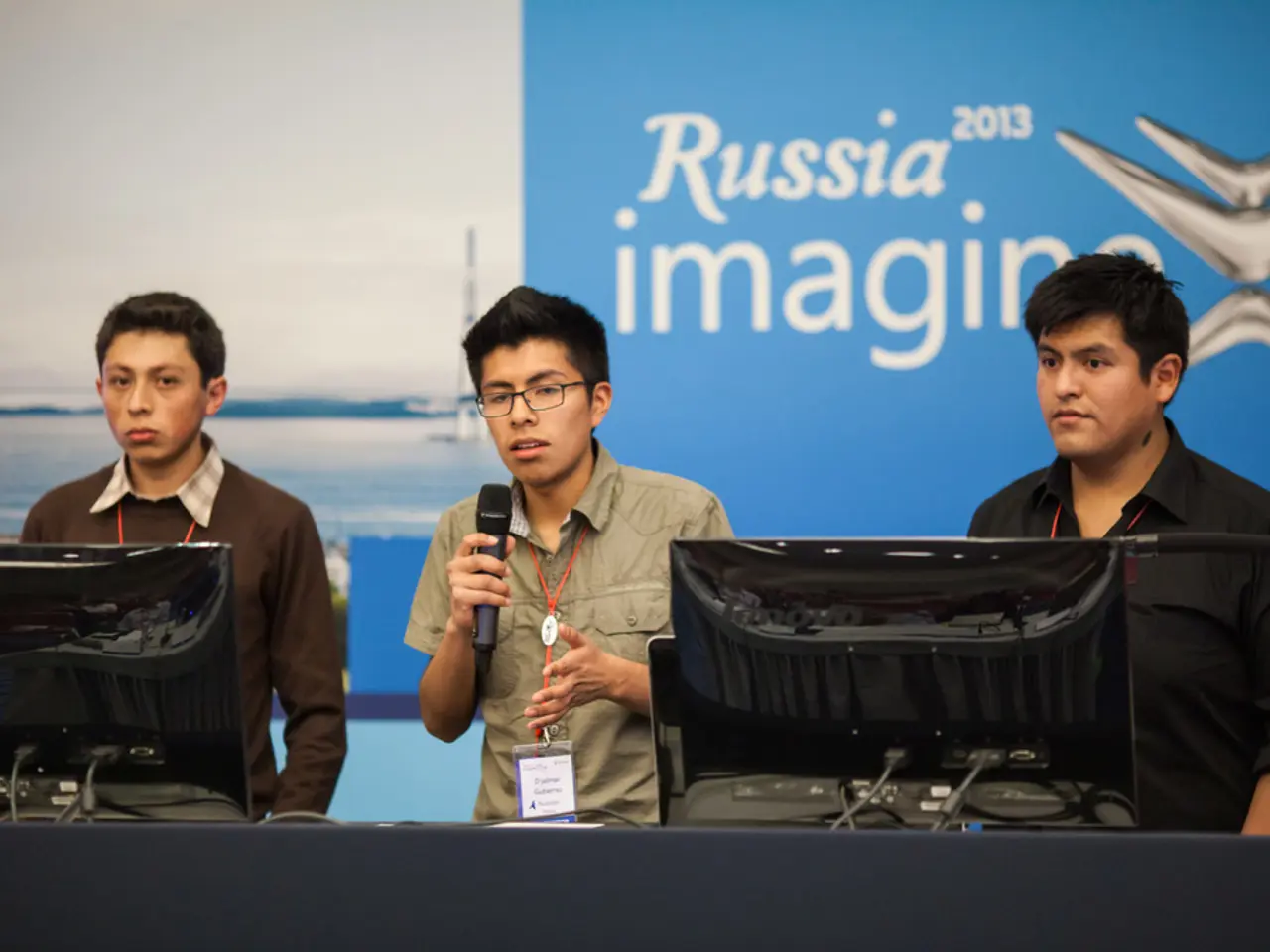Trump has announced a planned meeting with Putin on the following Friday in Alaska, with the aim of discussing a resolution to the ongoing Ukraine conflict.
The ongoing Ukraine-Russia conflict, which began more than three years ago when Russia invaded its western neighbor, has been the subject of recent discussions between former U.S. President Donald Trump and Russian President Vladimir Putin. The current negotiations center around the ambitious goal of achieving a full peace agreement rather than just a ceasefire.
Trump has expressed readiness to bypass a mere ceasefire, which he and others see as often temporary and ineffective, and move directly toward a comprehensive peace deal that would end the war. This position aligns closely with Putin's insistence that all root causes of the conflict must be addressed for peace to be sustainable. Putin emphasizes Russia's security concerns as fundamental to resolving the crisis and views the Ukrainian people as "brotherly," suggesting that a lasting settlement requires eliminating these underlying issues.
However, it remains uncertain if Putin is genuinely open to a trilateral peace meeting involving Trump, Ukrainian President Volodymyr Zelenskyy, and Putin to finalize such a deal. Zelenskyy has stated the importance of a lasting peace rather than a temporary pause and highlighted the urgent need to stop killings and hostilities on both battlefield and infrastructure fronts. While Zelensky supports peace, he insists that some form of ceasefire or halt to attacks is necessary before formal talks can meaningfully proceed.
The recent summit in Alaska between Trump and Putin did not result in any concrete deal or ceasefire. Experts noted Putin’s continued intransigence and ongoing military actions against Ukraine. The meeting seemed to provide Putin with a platform to break diplomatic isolation without altering Russia’s aggressive position or halting the war efforts. Additionally, the details of any "many points of agreement" reported by Trump remain unclear, leaving skepticism about the practical outcomes of these discussions.
Despite these challenges, Trump suggested that any agreement would likely involve "some swapping of territories," but he gave no details. The Kremlin has not yet confirmed the details of any future meetings.
Meanwhile, the Ukrainian forces are locked in intense battles along the 1,000-kilometer front line that snakes from northeast to southeast Ukraine. The Institute for the Study of War believes that Putin remains uninterested in ending his war and is attempting to extract bilateral concessions from the United States without meaningfully engaging in a peace process.
Other world leaders have also shown interest in the Ukraine crisis. Indian Prime Minister Narendra Modi had a call with Putin to discuss the latest Ukraine developments. Putin is also due to visit China next month. Chinese leader Xi Jinping had a phone call with Putin, discussing the results of his meeting with Trump envoy Steve Witkoff.
Trump's announcement breaks with expectations that they'd meet in a third country. Moreover, Trump signed an executive order to place an additional 25% tariff on India for its purchases of Russian oil. Xi "expressed support for the settlement of the Ukrainian crisis on a long-term basis."
The fragility and complexity of negotiating peace in the Ukraine-Russia conflict are evident in these dynamics, with no guarantee the meeting will stop the fighting since Moscow and Kyiv remain far apart on their conditions for peace.
- In the midst of ongoing discussions about a potential peace deal in the Ukraine-Russia conflict, both Trump and Putin have expressed a preference for a full peace agreement over a mere ceasefire, acknowledging the need to address the root causes of the war for lasting peace.
- As world leaders continue to express interest in the Ukraine crisis, Chinese leader Xi Jinping has expressed support for a long-term settlement of the conflict, aligning with the international community's desire for a lasting peace rather than temporary resolutions.





